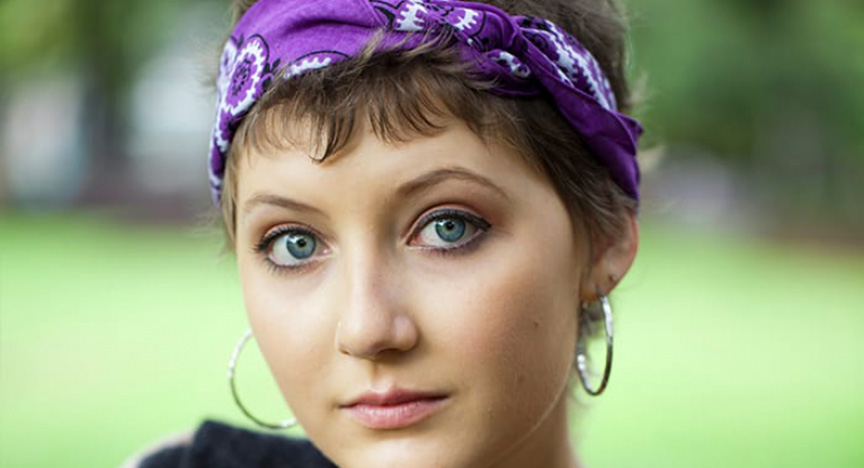
Are you a young person supporting a friend that has cancer? Does your child have a friend that has cancer?
Helping a friend isn’t always as simple as it sounds. Throw cancer into the mix and you’ll probably find yourself pretty confused about what to say and do.
If you’re reading this, you obviously value your friendship and want to do some research about how to help, which is a great start.
It’s OK to be lost for words and to feel confused or scared by the experience, even if you’re not the one with cancer. The specifics of how to help will depend on the kind of person your friend is, what your relationship is like and what practical assistance you can give. Two general rules are: be there and be genuine.
Many young people who have cancer are surprised when the friends they thought they could rely on don’t come through; however, sometimes others surprise them with their thoughtfulness and friendships deepen. It’s common for them to receive an outpouring of support when they are first diagnosed, but feel abandoned down the track, as friends don’t understand the ongoing effects of cancer and treatment.
Here are some common experiences of young people going through cancer treatment to help you understand how best to support your friend:
Loss of energy
Having cancer and undergoing medical treatments will sap your friend’s energy. They’ll need to rest a lot, and sometimes they might be too tired to concentrate. Think of things you can do together that don’t require a lot of energy like reading, watching movies or talking. Follow their lead on what they’re up for. Sometimes, they may not feel well enough for a visit, and they may find this hard to say. It’s not a reflection on you and it doesn’t mean you should stop visiting in future.
Changed perspectives
Going through cancer makes you think about big picture stuff: life, the universe and everything. It can be hard for your friend to worry about smaller issues that may be important to you when they’re focussed on the bigger picture and their health. Having compassion for each other can help you both to navigate these differences.
Heavy load
Cancer itself is stressful, not to mention all the procedures, needles, medicine, side-effects and waiting that go hand-in-hand with it. Young people with cancer often say they don’t want to be defined by it, but they don’t want it to be ignored either. Ask your friend about it and then follow their lead.
Wanting to feel normal
At the end of the day, your friend is still the same person, just with this thing called cancer taking up a big chunk of time and energy. Keeping them up to date with school and social events can be really meaningful and will show them that you haven’t moved on and forgotten about them. If their condition impacts their appearance or physical/mental abilities, take practical steps to fit that into your relationship, without making a big deal about it.
It’s important that you get the support you need too. For the moment, your friend might need more from the friendship than what they’re able to give back to you. Make sure you have other avenues of support, like friends, family and professionals to talk to. Similarly, encourage your friend to talk to other support people if you feel they need more than you can give.
Practical tips for supporting your friend
Don’ts
- Make a big deal about having to accommodate their needs.
- Tell them “everything happens for a reason”.
- Tell them about the latest “miracle cure”.
- Avoid them because you don’t know what to say. Saying: “I don’t know what to say, but I want to be here for you. What do you want to talk about?” is a good opener.
- Assume that their cancer experience will be like someone else’s.
- Expect them to react in a particular way.
- Expect things to go back to exactly how they were when treatment finishes.
Do’s
- Keep inviting them to events, even if they said no other times.
- Keep in touch as often as you normally would.
- Offer specific help, like: “Can I bring you your schoolwork?” or “Want some food that doesn’t suck?”
- Understand they might have more bad days than usual right now.
- Look after yourself and find people you can download to if your friend isn’t up for that.
- Know that fatigue is a real and impactful.
Friends are one of the most important things in life and cancer doesn’t change that. Being a good friend to a loved one with cancer has its challenges, but can ultimately deepen your bond and help your friend through one of the biggest hurdles they may ever face.
If you’d like to hear some young people with cancer and their friends talk about how they handled it, check out this video.
Additional useful resources
The Queensland Youth Cancer Service (QYCS) is a statewide service for young people aged 15-25 with cancer. The team supports adolescents and young adults living with cancer with specialised medical, nursing and psychosocial advice and care.
Visit https://www.childrens.health.qld.gov.au/chq/our-services/queensland-youth-cancer-service/
Kids Helpline (for children and young adults aged up to 25) https://kidshelpline.com.au/
If you’d like to read more about being a friend to someone with cancer, including more info on the medical side, see our Canteens online handbooks at www.canteen.org.au/young-people/my-friend-is-affected-by-cancer/